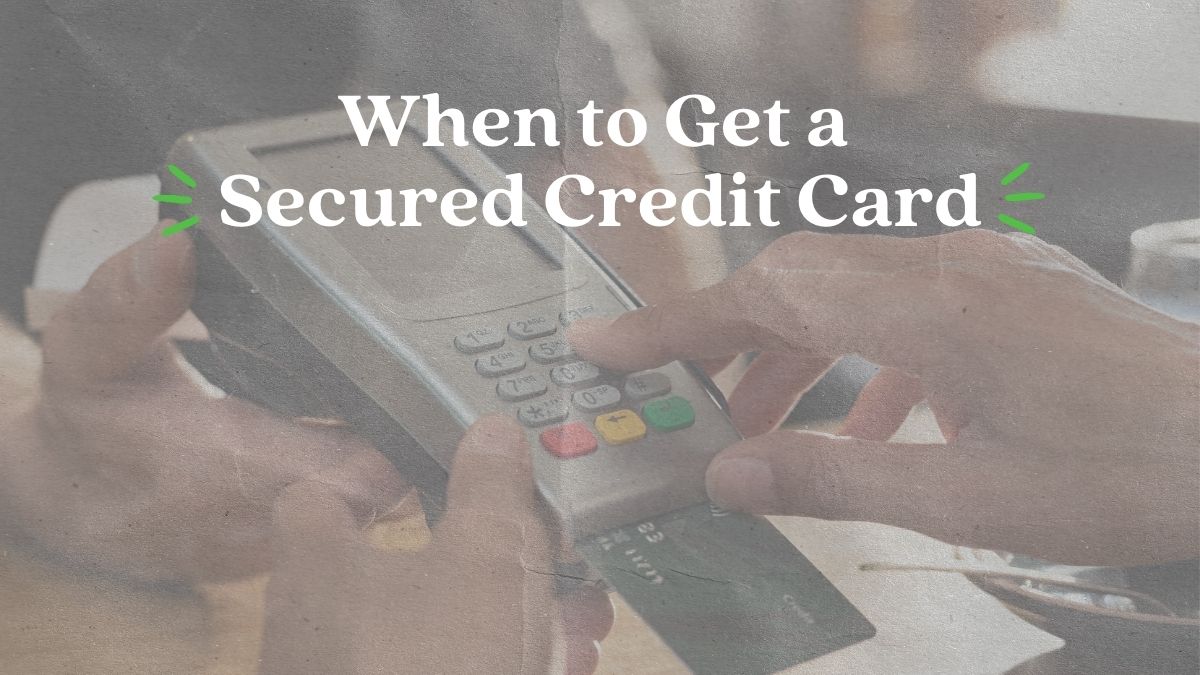May 2, 2022When to Get a Secured Credit Card
Secured credit cards work like regular credit cards, and you make purchases and payments as usual. But there’s one big distinction. With a secured card, the issuing financial institution requires you to put a cash deposit down as collateral, which they will keep if you cannot repay the balance. *
The secured funds are usually equal to the secured card limit. For instance, if the card has a $500 limit, your financial institution may put a hold of $500 on your checking or savings account or ask for a $500 deposit. Though this $500 is still in your account, it is not available for you to spend. Your financial institution will use these funds to cover the card debt if the card goes into charged-off status due to nonpayment.
While secured credit cards aren’t right for everyone, they are the perfect choice in the following three situations:
- You’re Rebuilding Your Credit
All kinds of life events, from losing a job to having a death in the family, can lead to excessive debt. If you’ve had to file for bankruptcy because of this, you are certainly not alone. Luckily, there are many ways to rebuild your credit after a bankruptcy, and a secured credit card can help with the process.
When you take out a secured credit card, PEFCU updates your credit report with the credit limit, the amount spent, and your payment history. If you pay your monthly bills on time, your credit score will improve.
- You Want to Avoid Overspending
If you don’t have a lot of credit lines on your credit report, a secured or traditional credit card can help you establish a credit history. Many financial advisors suggest taking out a credit card and using it for small purchases like gas and paying off the balance every billing cycle. However, this feat can be hard to accomplish with a traditional credit card because there is always the temptation of overspending.
In contrast, you know that you aren’t getting in over your head if you have a secured card. In a worst-case scenario, if you run into a problem where you can’t keep up with the payments, the funds are already there to cover the balance up to the credit limit if the card is charged off due to delinquent payments.
- You Want to Teach Your Teen About Credit
Finally, a secured credit card can be a great way to teach teens how to use credit responsibly before heading off to college or out on their own (NOTE: You must be 18 years old to have a credit card). Due to the prominence of online shopping and in-app purchases, most teens want to have their funds available on plastic; but with a traditional card, there is always the threat of overspending. Shoppers of all ages are prone to spend more when using a credit card, and impulsive teens might be even more likely to overspend.
However, if you set up a secured credit card for your teen, you can be sure they can’t spend beyond the set limit. They can only spend up to the amount already secured in their account. This arrangement can allow your teen to test drive a credit card without the responsibilities associated with a traditional card.
We’re Here to Help!
If you have questions about secured credit cards or would like to learn more about this beneficial credit-building tool, stop by any branch or give us a call at 800-226-6673.
Each individual’s financial situation is unique, and readers are encouraged to contact PEFCU when seeking financial advice on the products and services discussed. This article is for educational purposes only; It does not constitute legal advice. If such advice or a legal opinion is required, please consult with competent local counsel.
*The collateral that serves as the credit card balance, held by the issuing financial institution (PEFCU), is not a replacement for making on-time payments each month.



i am interested in a secured credit card. i filed bankruptcy in april.
For more information about our credit card options please reach out to our Member Contact Center at 1-800-226-6673.
Interested in having my 16 years old son obtain a secured Visa to learn about the responsibilities related to credit and to acually start earning credit with his ontime payments. Is this possible? the information is unclear to me. It first says “want to teach your teen about credit” but then says “must be 18 years old”. Which is it?
Hi Catherine – to apply for a credit card by yourself, you must be 18, but there are options for minors as well. Please reach out to our Member Contact Center at 1-800-226-6673 for more information relating to your specific situation. Thank you!